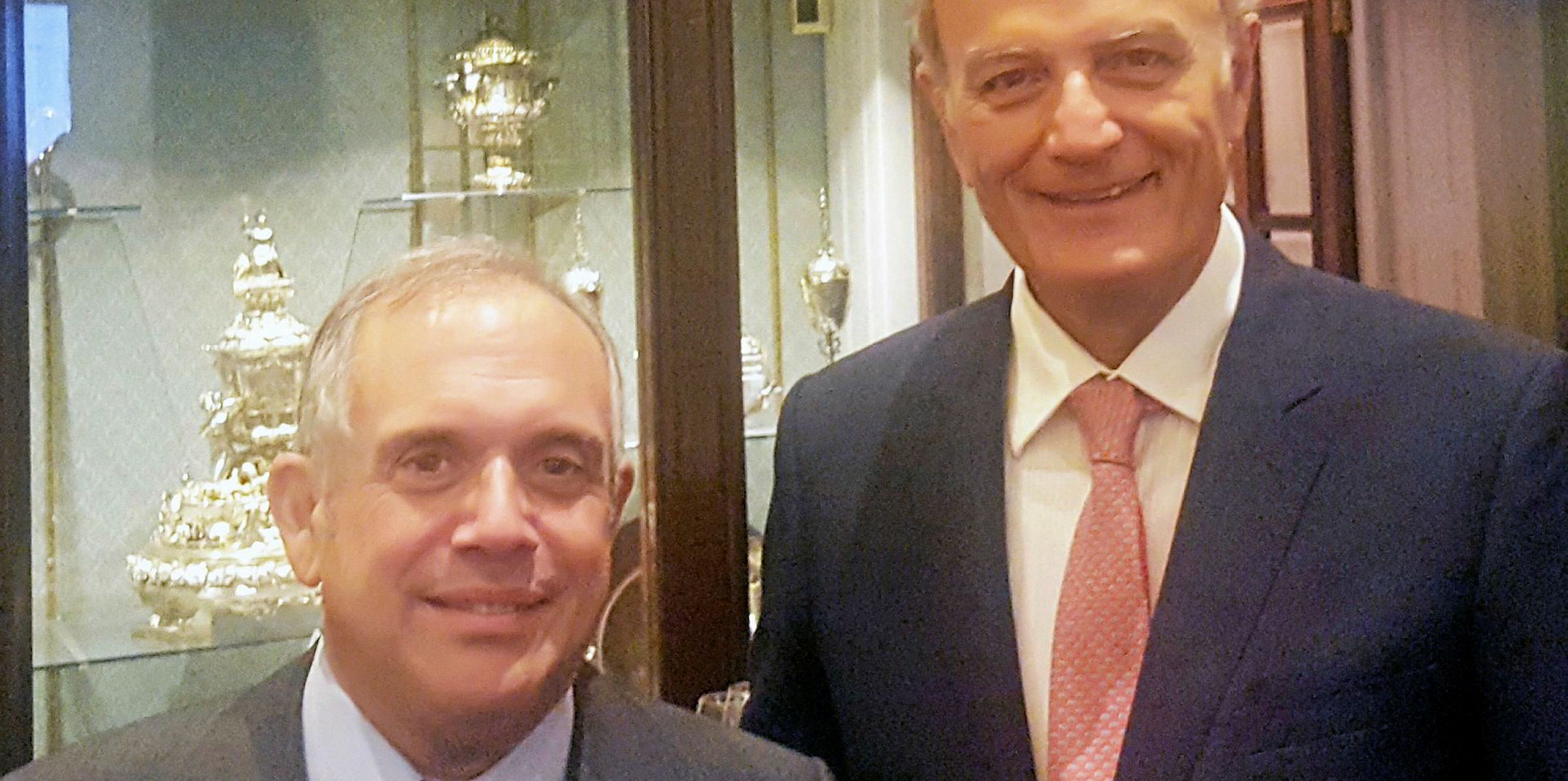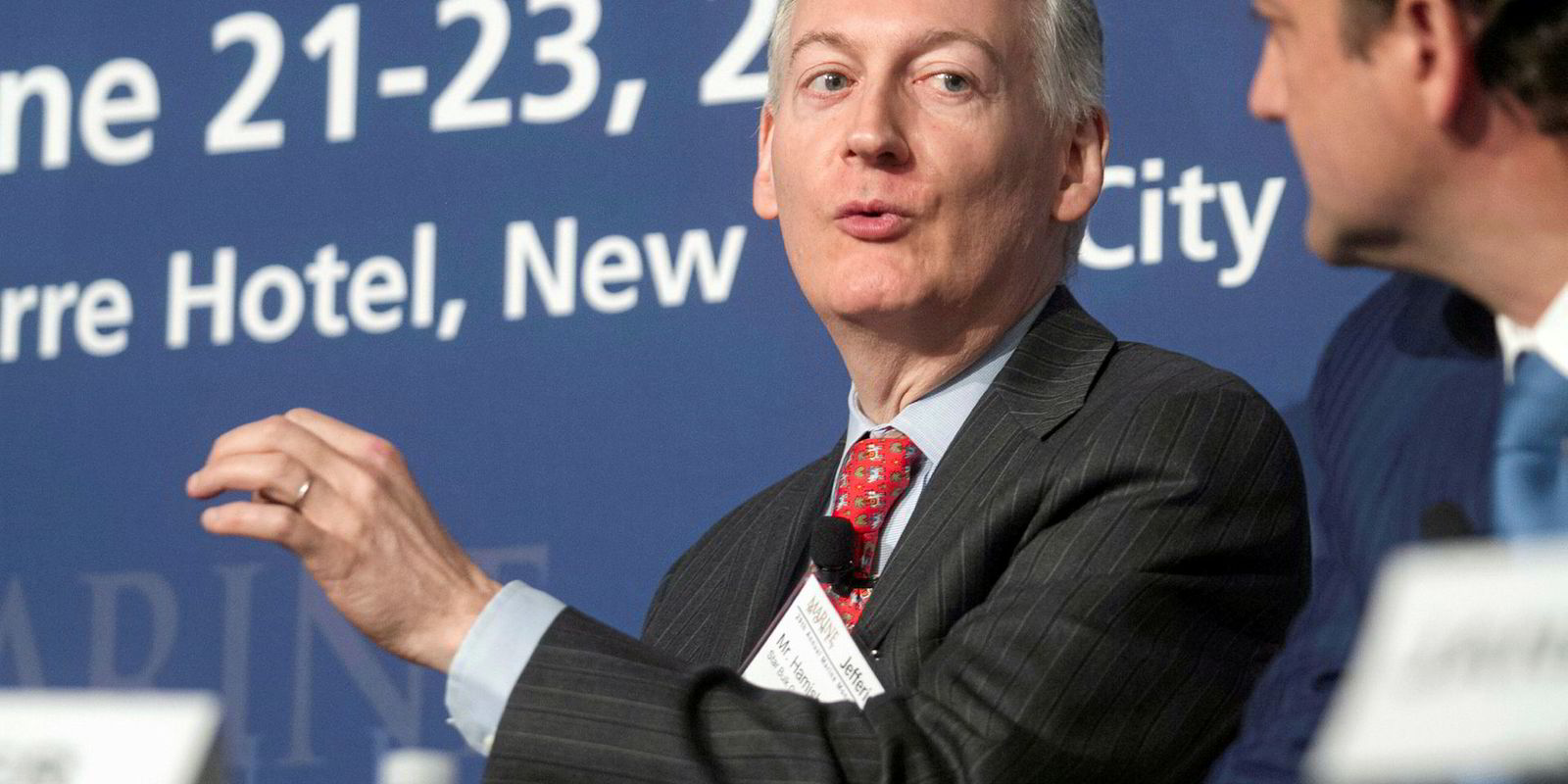John Platsidakis criticised recent ballast water and sulphur regulations and called for better oversight of the shipping industry as he stepped down after six-years at the helm of dry bulk shipping association Intercargo.
He was speaking at the association’s annual general meeting in London on Tuesday, where he handed over the reins to Fafalios Shipping’s Dimitrios Fafalios.
In his opening remarks, Platsidakis outlined his support for the IMO.
“I cannot emphasise more that we welcome regulations that are practical and possible to achieve and take into consideration the way ocean tramp shipping operates,” he told delegates.
“We are highly supportive of the role of the IMO and want it to be the only entity to regulate our industry, as opposed to the ones that have a vague view of the modus operandi of shipping.”
However, it was not long before Platsidakis questioned recent IMO regulations, including the Ballast Water Management Convention and the Marpol Annex VI, which restricts the sulphur content of fuel to 0.5% from 2020.
Despite shipping expertise in the IMO, most representatives of the 174 member states have a very inadequate understanding of shipping operations and sometimes adopt regulations that are out of touch with reality
John Platsidakis
“We have our concerns about how well the IMO comes up with the practical and achievable regulations,” he said. “It is a fact that we live in an environmentally sensitive time, and I have no doubt it will be more so in the future.”
“Despite shipping expertise in the IMO, most representatives of the 174 member states have a very inadequate understanding of shipping operations and sometimes adopt regulations that are out of touch with reality.”
Voicing concerns
He said that when the Ballast Water Management Convention was adopted in 2004, the technology to achieve the regulation was not in place and questioned which other industries would have made such a move.
Platsidakis took a similar view of Marpol Annex VI, suggesting responsibility for reducing emissions was placed with shipping companies as the sector did not have the political clout of the refining industry.
“Consider the following. When governments want to regulate car emissions they impose a regulation on the car manufacturers, not on individual car owners. What happens in shipping? The burden is imposed on the ships and not on the bunker suppliers or refiners or traders, etc,” Platsidakis said.
“Ocean tramp shipping does not have a significant political weight as it is not an industry of the politically strong countries.”
He said that the burden could have been put on the refinery sector, but was not because refiners had greater political muscle.
“We have been instructed to use 0.5% bunkers but the regulators cannot tell us where to find it,” he added.
Call for action
Platsidakis' call for improved regulation comes as the latest figures show that Intercargo membership now represents a substantial proportion of the dry bulk fleet.
When he began at Intercargo, the London-based association had less than 1,000 ships under membership. But after a marketing campaign orchestrated by Platsidakis, its numbers have swelled to 2,146 ships, accounting for more than 20% of the dry bulk fleet.
He said it was now time for regulators to respond with better regulation.
“I would send a strong message to regulators to make the best regulation available and be sure we will be the first ones to applaud it and adopt them,” he said.
“We don’t have any other option but to comply. We must stop giving the impression to the unaware public that we are guilty.”
He noted that shipowners invest heavily in a capital-intensive industry and move 90% of world trade in a safe and cost-effective way, which contributes to higher standards of living. “We are proud of what we have been doing,” Platsidakis said.





